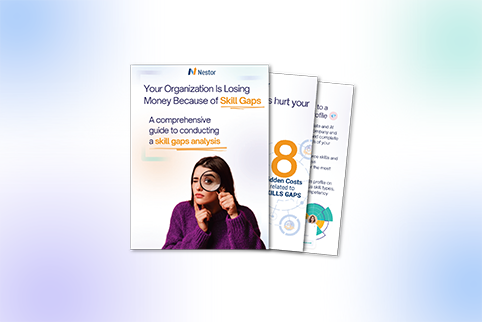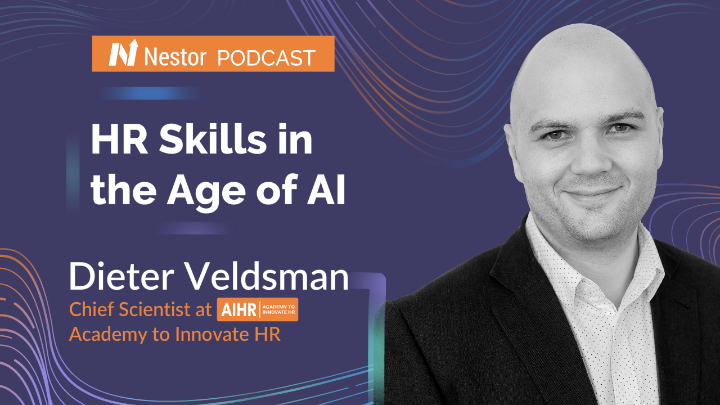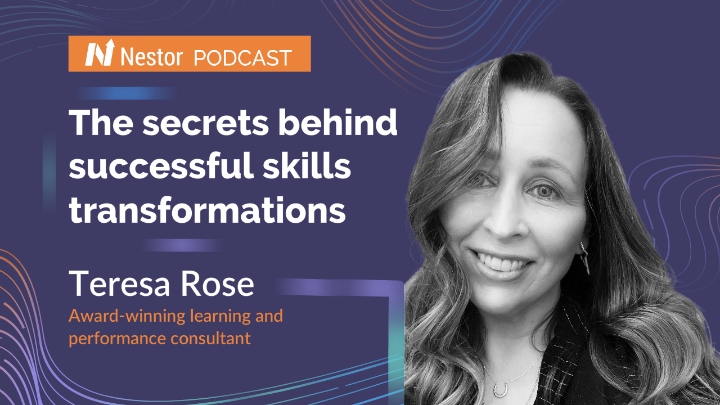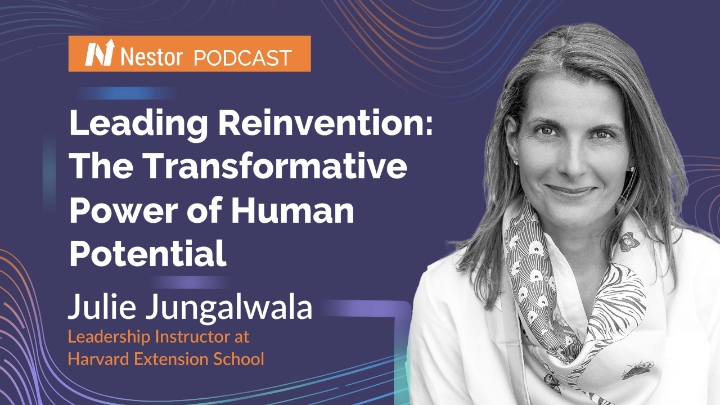Marc Butler talked about the importance of managing resilience in organizations, how to lead with a people-first approach, and shared best practices for executive leaders when making tough decisions through difficult times.
Marc Butler is the former Chief Operating Officer at BNY Mellon Albridge, and is currently a fintech board member and advisor. He is an advocate for leading by putting people first.
An innovative and highly-respected global business and financial services executive, he has demonstrated success in driving accelerated growth in start-up and established financial technology companies, leveraging strategic, results-driven leadership to visualize a company’s potential, tackle its challenges head-on, and deliver tangible results.
Throughout his career, he has established a solid track record of building businesses from the ground up, turning around performance, and managing organizations through dynamic change and transformation, strategically engaging and mobilizing people behind a shared vision and passion for excellence.
Recognized by Forbes as one of its “next generation” CEOs, Marc excels at cultivating high-performance teams and organizational cultures by emphasizing “people first” and combining a deep understanding of business and technology to create competitive advantage. You can connect with Marc on LinkedIn.
Bogdan Apostol is the CEO of Nestor and you can connect with him on Twitter @bogapostol.
When should an executive leader or a business owner start building a resilience plan in the face of a crisis?
Marc: Most leaders have been pretty good, especially in larger companies, at building resilience plans. But most of those plans have been designed for a disruption in the business. They haven’t been designed for a pandemic. We are in largely uncharted territory, especially here in the United States. I think in Asia they have been a little bit more prepared for a pandemic because they’ve gone through similar types of things in the past. Most larger businesses, especially in financial services, have a lot of people supporting leaders in business disruption planning.
How does resilience apply to startups compared to established companies?
Marc: My advice to startups, who are usually lean in terms of numbers of people, is to bring their leadership team together to think through these things and create a well-thought-out plan so that you don’t get caught flat-footed.
There’s a firm that I’ve been talking to recently that has gotten caught flat-footed in this environment and did not have the right plans in place for their business operations, their employees, and how they face off with the clients. So there are some good lessons to be learned I think for everyone, but probably most specifically with startups.
Startups should bring their leadership team together to create a well-thought-out plan so that you don't get caught flat-footed.
— Marc Butler
What are some key aspects that the executive team should consider replicating in a remote work environment?
Marc: There are a number of things. Startup founders know how to operate within the remote work environment, as well as others in the technology startup space because they have been working this way for a number of years. So, some of this isn’t new, because this is how they have been working – not only here within the US, but also across the world.
I’ll just hit on a couple of the points:
1. The end-users
Think about your employees and what the employee experience is. The key is going to be manager preparation. Are the managers prepared? Are they in support of working differently? Employees are going to look towards managers to lead them through this difficult time. Do managers have answers to the questions their employees have?
2. The Guidelines
There are a lot of companies that remote work is new to them. There’s a very large number of companies here in the US that haven’t been set up for remote work and this is a new way of working for them. What are the guidelines? When do managers and leaders expect employees to be online and available? What might be going on outside of an employee’s work day that a manager or leader needs to take into consideration? In this environment, you have a lot of instances where parents are now having to act as a part-time teacher and guide to help their kids get through the school day. These are some interesting situations that we’ve never encountered before.
3. Setting up a support framework
If somebody needs help, if they are not great in using the technology or not comfortable with it – where are they gonna go? Some of the things that you don’t want to do is just release new software and expect that people are going to be productive from the first minute. Supporting your employees is key. Not having that support is going to create problems. People not going to be confident in the leadership of a company to get them through this if they’re not able to work in a productive manner.
Supporting your employees is key. Not having that support is going to create problems.
— Marc Butler
4. Expectations
Don’t expect people to be experts immediately in working remotely. I’ve seen people stumbling with the Zoom cameras, not knowing how to get a meeting started, not being visible in the camera. There are all sorts of potential challenges with being able to work remotely.
These are guidelines that you will want to keep in mind during this transition in terms of people adapting to the new realities. I think that the future of work is here. A lot of companies out there will also ultimately move to a hybrid, where some people will work in a central office while others will be working remotely. I think you’ll have a greater appreciation for the ability of people to work remotely. Companies that have avoided hiring people who can only work remotely will start to think differently about it because they have cut themselves off from a significant pool of talent in the marketplace by saying that ‘We exclusively want people in an office’.
Collaborating online is a huge part of the future of work as well. Interviewing over video is something a lot of companies weren’t comfortable with. From the feedback I’ve gotten, doing video interviews has been very effective. People are getting hired without ever having met anyone in person. So the future of work is here, and it’s here to stay.
Don't expect people to be experts immediately in doing work remotely. It takes a while to adapt.
— Marc Butler
In times of crisis, exec leaders need to make tough decisions for keeping business operations running. What’s recommended and what’s not?
Marc: I think a lot of businesses are faced with that today. I’ll talk about a couple of examples but I think there are some components to it that are important:
1. Put People First
Companies that are putting their people first are going to emerge from this a lot stronger. They are going to redefine their Employee Value Proposition. The employee experience during this pandemic is going to be memorable – how people feel, how they’ve been treated by their employer and manager, and how their employer has led them through this period of time.
2. Think About Customers
How are the customers gonna feel through this? As we said earlier, there is no playbook for a pandemic, but companies need to think through what they are going to do differently in terms of their standard decision-making. Are you gonna think differently about policies that you’ve had in place that affect customers? Much like employees, customers are not going to remember what you say to them, but they are going to remember how you made them feel during this difficult time.
Putting employees and customers first is really important at this time.
3. Communicate Effectively
If you have to make a tough decision, are you communicating that effectively to your employees? Do you communicate that effectively to your customers? Are you being honest about what you do know and what you don’t know? People are looking for that level of transparency and are looking for leaders to be authentic in what they say.
As an example, there is a local business here in Pennsylvania where the owner of the company just decided he was going to stop paying his people. He didn’t tell his people that that was the decision that he made. We have a friend who is an 18-year employee of this company, has been committed, has endured some tough times with this company, and all of a sudden they just stopped getting paid. Employees are gonna remember how this made them feel.
Putting employees and customers first is really important through this time.
— Marc Butler
How could sudden transitions affect the employee experience and what can one do to help them develop individual resilience?
1. Know your people at an individual and personal level
Marc: From an individual standpoint, we talk about putting people first. Leaders know people at an individual and a personal level. And this is personal – people are working from home, they have kids and their kids are trying to do school work from home. There are a lot of challenges that people are facing outside of their work environment and their work experience. Real people first leaders understand the challenges and they are not expecting that people are going to be online or on a video 12-hours a day. There are going to be points in the day where they are not going to be able to do that, so empathy is really important for leaders and for managers. They should really understand on a personal level what people are going through, what they have to endure, and give them room to adapt and operate.
Employees will remember this period, they’re gonna remember the experience. So I think it’s important for leaders and managers to understand that.
Real people-first leaders understand the challenges and they are not expecting that people are going to be online or on a video 12-hours a day.
— Marc Butler
2. Continue to define why their work matters
Another thing that is important for leaders is to talk about why the work they’re doing is important. Employees want to know that the work they are doing and the contributions they are making are important, either in the context of the company and the team or in the context of serving clients, or both. Reminding them that the work that they’re doing is critical.
Continuing to talk about why the work we are doing is important. People feel a sense of pride.
— Marc Butler
3. Redefine your Employee Value Proposition
This is a great opportunity for employers to redefine their employee value proposition. The pandemic has changed a lot of things in terms of how we interact with employees and the future of work is hiring potentially remote workers.
How is your employee value proposition changing and how are you redefining it? If you don’t have one, now is the time to put one together. From an employee engagement standpoint, solutions like Nestor are critical during this time and it helps drive consistency in that employee experience when people are remote. The opportunity to have a live-in person 1-on-1. Even if you not able to have a live in-person 1-on-1 right now, it can be done over video. We are able to use solutions like Nestor to be able to document what we talked about in one-on-one conversations and what the next steps are. These kinds of technology solutions are a huge part of the future of work.
This is a great opportunity for employers to redefine their Employee Value Proposition.
— Marc Butler
How should leaders and business owners deal with the uncertainty?
Marc: I think communication is very important. Show empathy, authenticity, and transparency. If you think about some really good examples over the last few months, I think it was the CEO of Marriott who did a video that went out to his employees and it was touching. He was very emotional when he spoke about the impact that the pandemic was having and the decisions they were going to be faced with making as the hotel business has been completely devastated.
Communication is very important. Show empathy, authenticity, and transparency.
— Marc Butler
So that to me was authentic and he provided transparency about the decisions that they were going to make or that they had already made. He was also clear about what he didn’t know and the unknown. That was a really good example of a leader who showed empathy, was in touch with his people, who knew the impact and was not afraid to show his feelings when he delivered his message.
Other leaders have decided that working remotely is not something they are comfortable with. I was talking to someone yesterday who has a boss that is insistent he doesn’t want people working from home. The owner of the company has actually asked people to start coming back into the office next week. The person I spoke with, who is the treasurer at the company, is very uncomfortable with this and again this just goes back to our questions: Are you showing the right level of empathy? Are you putting people first? At the end of the day, people are gonna remember how you made them feel.
You have to show empathy, authenticity, and transparency. This is the moment when we move away from the old-school command and control management style and start leading for a different age, for a different group of employees. This is the event that is going to be the change agent.
This is the moment when we move away from the old-school command and control management style and start leading for a different age, for a different group of employees.
— Marc Butler
What are the effects that this COVID-19 crisis is going to have on businesses in the long term?
Marc: I think it has changed forever. The companies that decide that they don’t want to move towards the future of work, there is a price to be paid for that. Are you gonna be able to draw the talent that you need in order to be successful going forward? Are you gonna be able to draw in the youth and the new ideas that you need? Companies that are operating with an old mindset are going to have to move past this way of thinking. Companies who have been doing things differently have been focused on the future of work, they have been leveraging technology, the have had remote workers, and have been using video. Those companies are ready for the future.
So the future is now, and as I said at some point we’re not gonna call it the future of work anymore because it’s going to be the current state of work.
The future is now. At some point we will stop calling it the future of work. It's going to be the current state of work.
— Marc Butler










